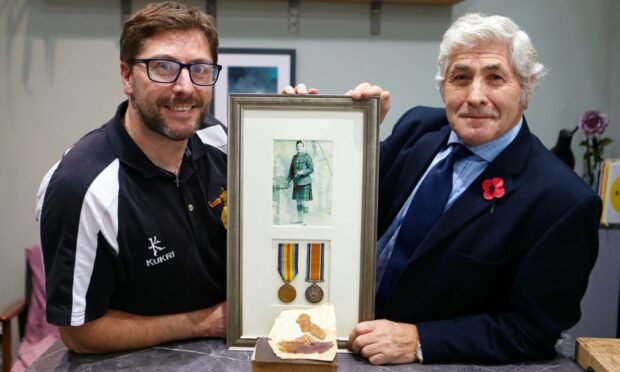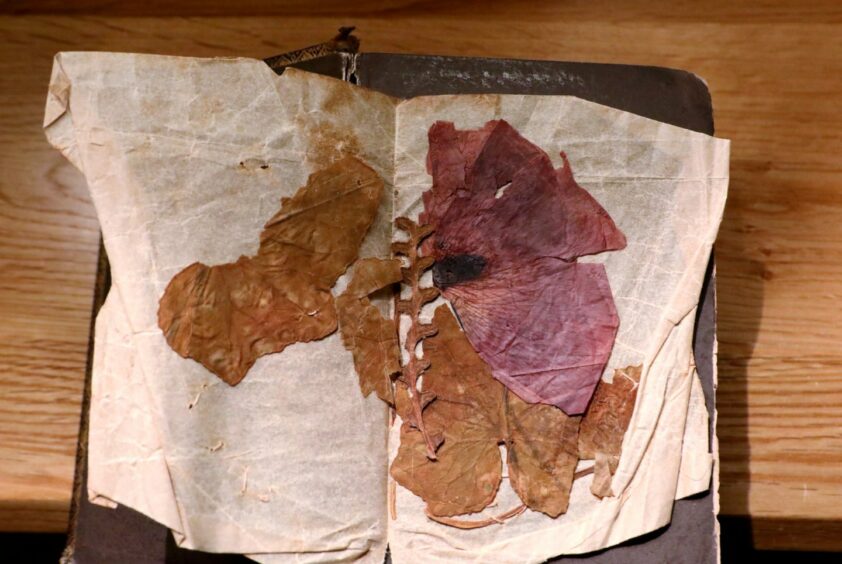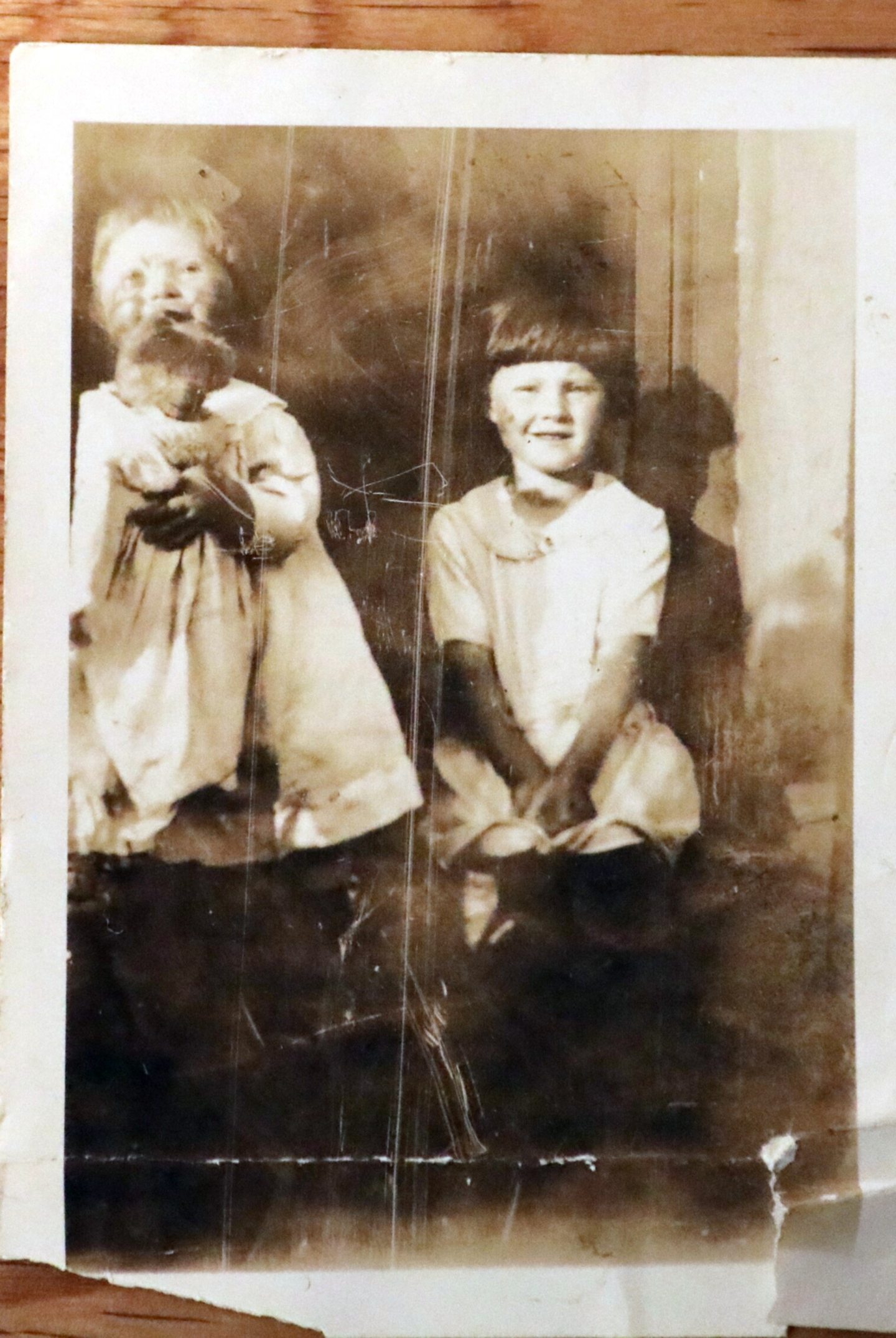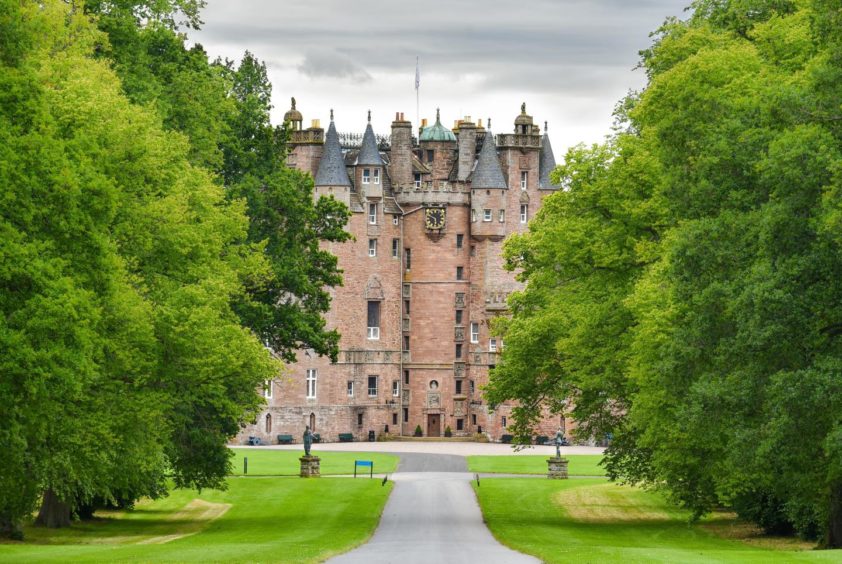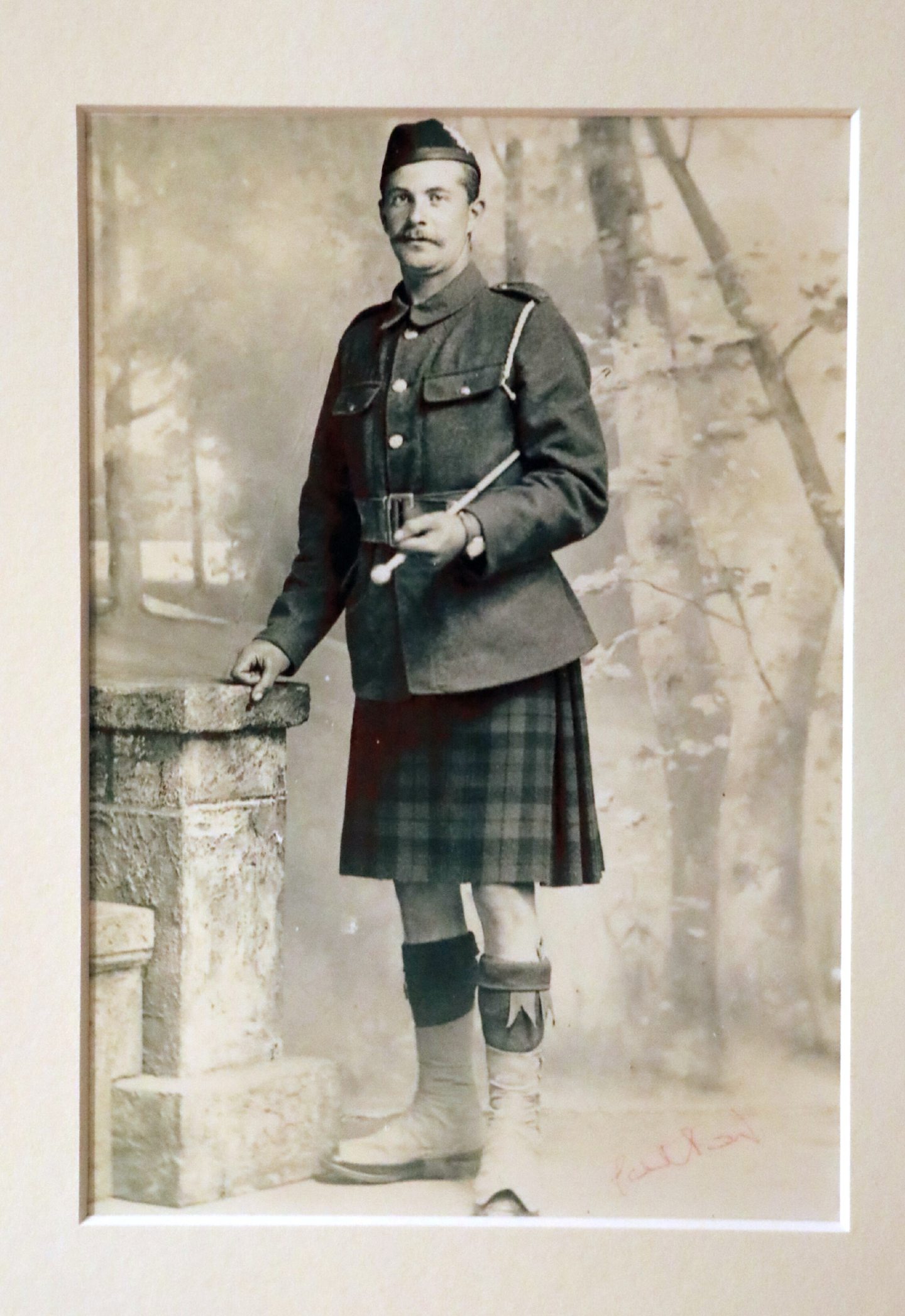Today marks a century of the poppy as a symbol of remembrance for the brave men who fell on the bloody battlefields of the First World War.
But for the descendants of Black Watch Private Alfred Ross, the connection to the sombre flowers of Flanders stretches back further still – and lives on to this day thanks to a poppy kept in the family for 104 years.
Angus war hero Pte Ross, who was born in Menmuir, left his home at Soutra Cottage, Glenogil, to fight in the trenches of Belgium.
And in a brief moment of respite from the relentless shelling and gunfire, he picked a poppy that he sent home from the front to his mother in 1917.
The young soldier was one of the fortunate troops who returned safe to his loved ones from the 1914-1918 conflict – and he kept the Flanders poppy he mailed home pressed in his bible until the day he died.
He bequeathed the token of remembrance to his daughter, Elizabeth, who in turn left it to her son, Alf Thomson, with the simple note “Real Flanders Poppy from 1914-1918 war – sent by my father to my grandmother”.
Alf then gave the cherished heirloom to his eldest, Ross Thomson.
While the poppy has withered with the passage of time, its significance to Pte Ross’s family has never waned – and, in fact, continues to grow.
It now takes pride of place in Ross’s home in Montrose, along with a framed picture of his great-grandfather and his medals.
Ross, 45, a biology teacher at the Angus town’s academy and Montrose FC club announcer, believes it is important people recognise the sacrifice their forebears made more than a century ago.
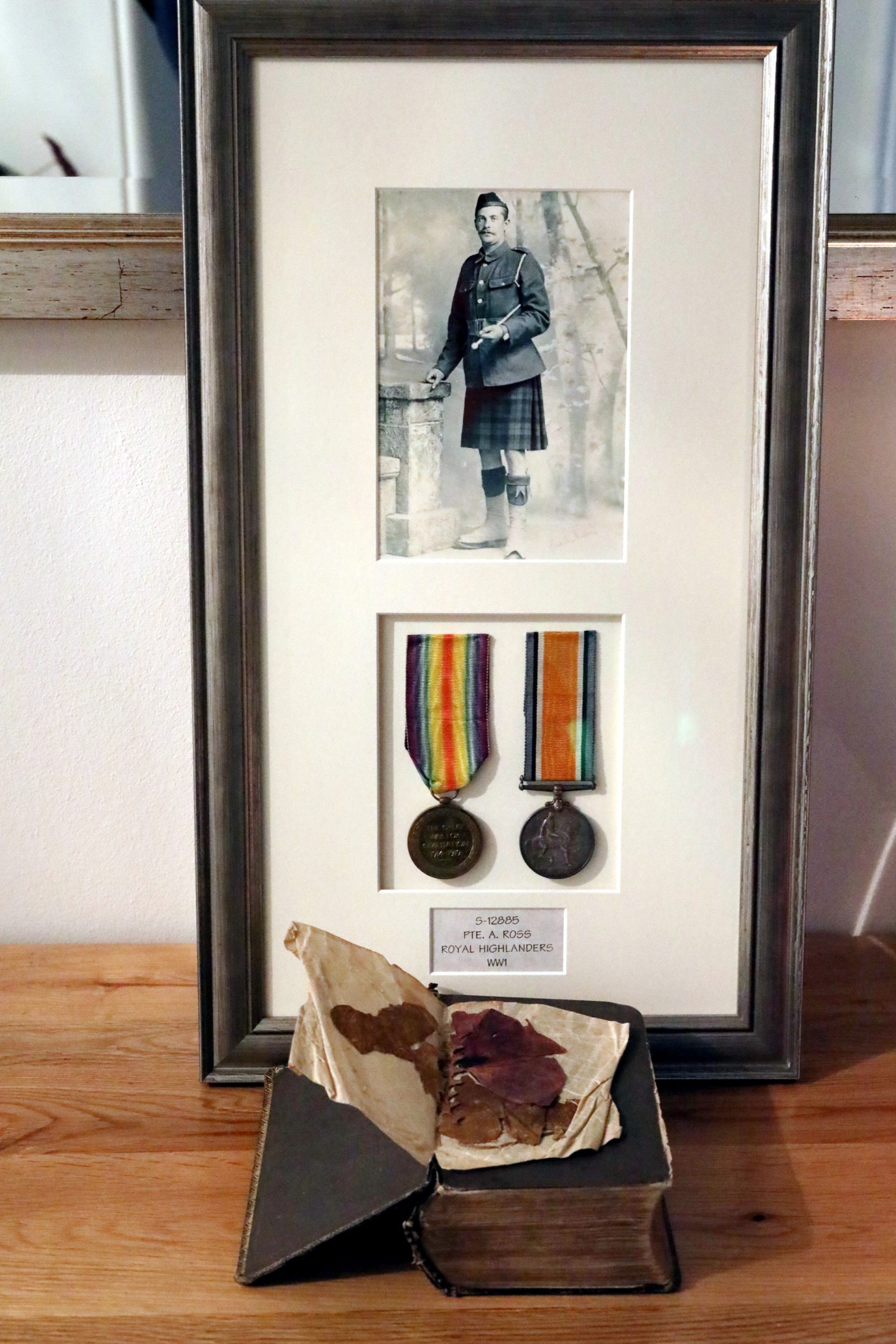
As he prepared to mark today’s Remembrance Day, with its two-minute silence on the 11th hour of the 11th day of the 11th month, he said: “With no surviving veterans of the First World War left and as the years continue to pass, there is a danger that this war, which changed the world forever and affected so many lives, could be forgotten over time.
“It’s important younger generations never forget what our ancestors went through on the battlefields of Belgium and France.
A bible and brothers-in-arms…
“I take great pride in my family’s heritage. My great-grandfather’s Flanders poppy is a treasure you simply couldn’t put a price on.
“It’s very humbling to have in my possession a poppy he picked amid the artillery fire and shelling of Flanders and kept safe in his bible for the rest of his life, as a constant reminder of the horrors he faced and of the brothers-in-arms who lost their lives.”
According to Pte Ross’s grandson, Alf, he very rarely mentioned what he went through during the war.
But Alf, 73, of Fettercairn, says he was fond of speaking of his brush with future royalty at Glamis Castle, where he was treated for shrapnel wounds before returning to the front.
Glamis – the childhood home of the late Queen Mother – was used as a convalescent home for injured soldiers during the war.
Alf said his grandfather was lucky to survive the German shell attack that killed comrades standing just feet away from him.
The retired joiner, who worked as a maintenance chargehand at Stracathro Hospital, added: “My grandfather often mentioned it was the Queen Mother who helped nurse him back to health at Glamis.
“She was, of course, just a teenager and plain, old Lady Elizabeth Bowes-Lyon back then.”
Pte Ross, who latterly lived in Forfar after working as a farm labourer and council roadman, passed away in September 1968, aged 76.
But he did recount some war stories to his family before he died.
Alf said: “He once described how a horse-drawn British artillery gun sank and disappeared without trace in a flooded shell hole.
“He also said if soldiers found a stone in the trenches they would take turns standing on it on one leg to avoid getting foot rot.”
Alf’s other grandfather, Frederick Thomson, also fought in the First World War.
The St Cyrus-born farm worker, who was raised in Usan near Lunan Bay, went to battle as a teenager as the war was drawing to a close and after all his older brothers – James, Alexander and Charles – were killed in combat.
Alf said: “November 11 is important and always should be.
“The horrors so many young men went through in the Great War, as well as the Second World War and many conflicts since, are unimaginable.
“It’s a day to honour the fallen but also to use history as a teacher.
“We must never forget how truly devastating wars can be and to learn from mistakes of the past.”
